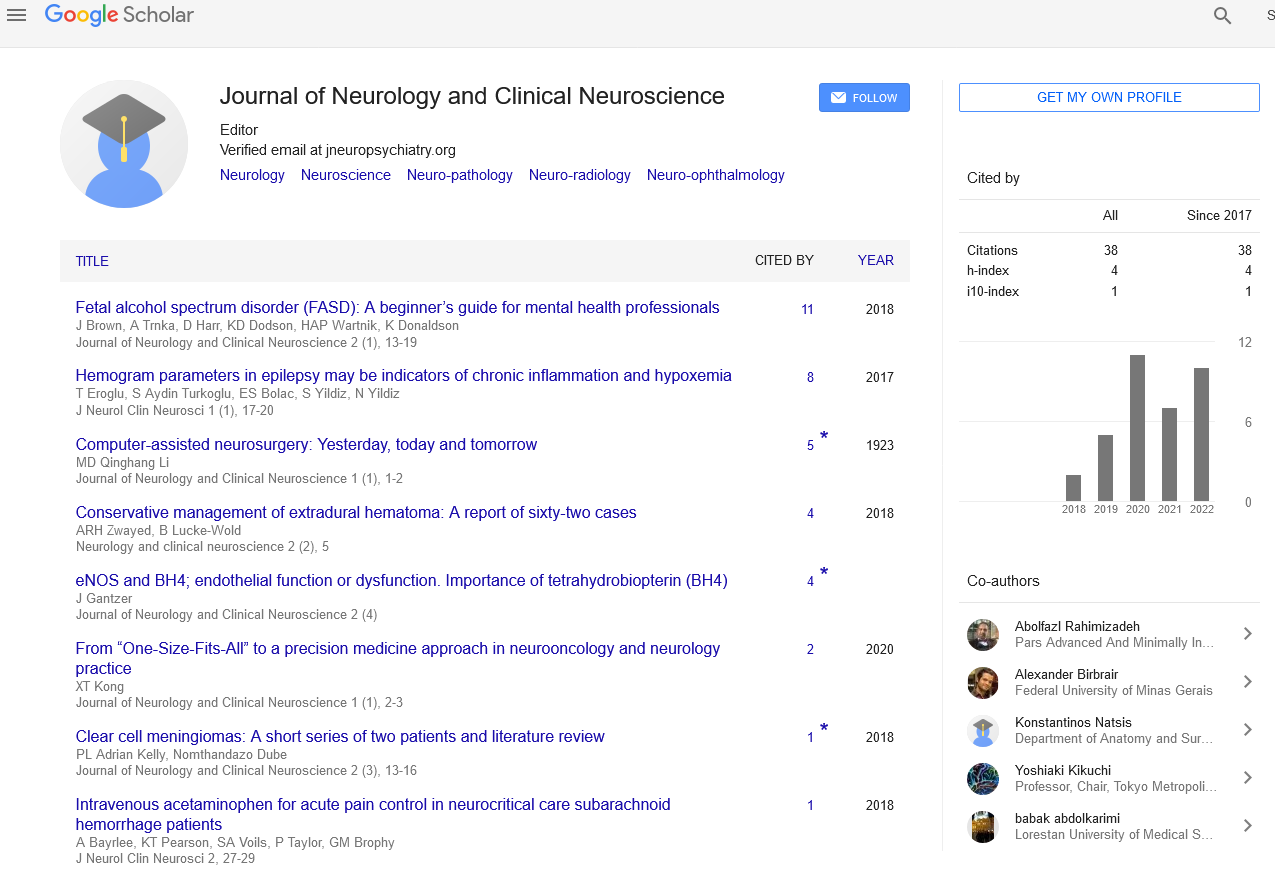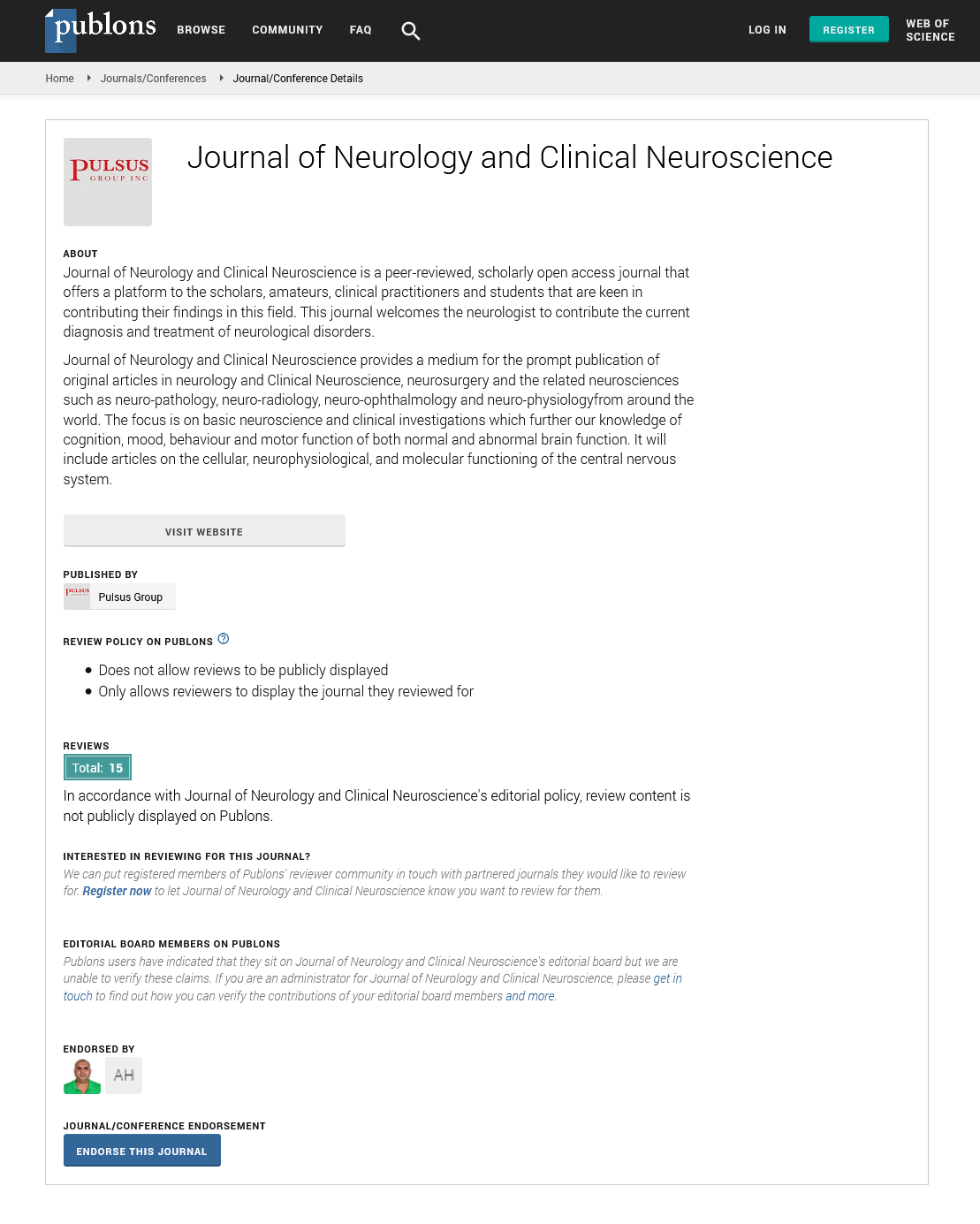Sign up for email alert when new content gets added: Sign up
Assessment of the quality of life of young men suffering from epilepsy
Joint Event on 4th International Conference on Neurology and Healthcare & International Conference on Clinical and Experimental Neuropsychology & 3rd World Drug Delivery and Formulations Summit
June 24-25, 2019 | Rome, Italy
Anna Voitiuk
Kharkiv Medical Academy of Postgraduate Education, Ukraine
Keynote: J Neurol Clin Neurosci
Abstract :
Introduction: Epilepsy is one of the most frequent and serious neurological diseases. This disease has a significant negative impact on all areas of the patient's functioning, reducing the quality of life. In everyday life, men with epilepsy regularly experience difficulties. Basically, it is a decrease in social and personal ambitions, low self-esteem compared to healthy people, an increase in the level of anxiety and depression. Depression in people with epilepsy is often manifested by symptoms that can be regarded as both side effects of AEDs, and as manifestations of epilepsy per se (sleep disorders, changes in appetite, behavioral disorders, inhibition or excessive excitability, etc.). The purpose of the study is to assess the Quality of Life (QL) of young men with epilepsy, to determine the leading mechanisms of psychological protection and their effectiveness.
Methods: The study included neuropsychological testing using the Quality of Life in Epilepsy-31 questionnaire (Quality of life in epilepsy) and the Hamilton scale for assessing the severity of depression (HDRS).
Results: Analysis of the test data of 40 patients (100%) showed that 6 (15%) of them rated their QL as “very low”. “Low” and “average”estimates of total QL were obtained from 10 (25%) and 16 (40%), respectively. In 8 (20%) patients, the parameters were located in the intervals of “good” QL. No estimates of the “high” quality of life have been received in any case. On the HDRS scale, the severity of depressive disorder was determined in 24 patients (60%) as mild (7-17 points), moderate (18-24 points) - 14 patients (35%) and severe (>24 points) - 2 patients (5%).
Conclusion: Thus, in patients with epilepsy revealed a significant decrease in QL, depending on the type of attack. Estimates of the "high" quality of life have not been obtained. Depression and anxiety disorders greatly affect the quality of life of patients, thus leading to an increase in the number of suicides.
Biography :
Anna Voitiuk is an associate Professor at Kharkiv Medical Academy of Postgraduate Education, Department of Neurology and Child Neurology, Kharkiv, Ukraine.
E-mail: a_vojtyuk@yahoo.com





